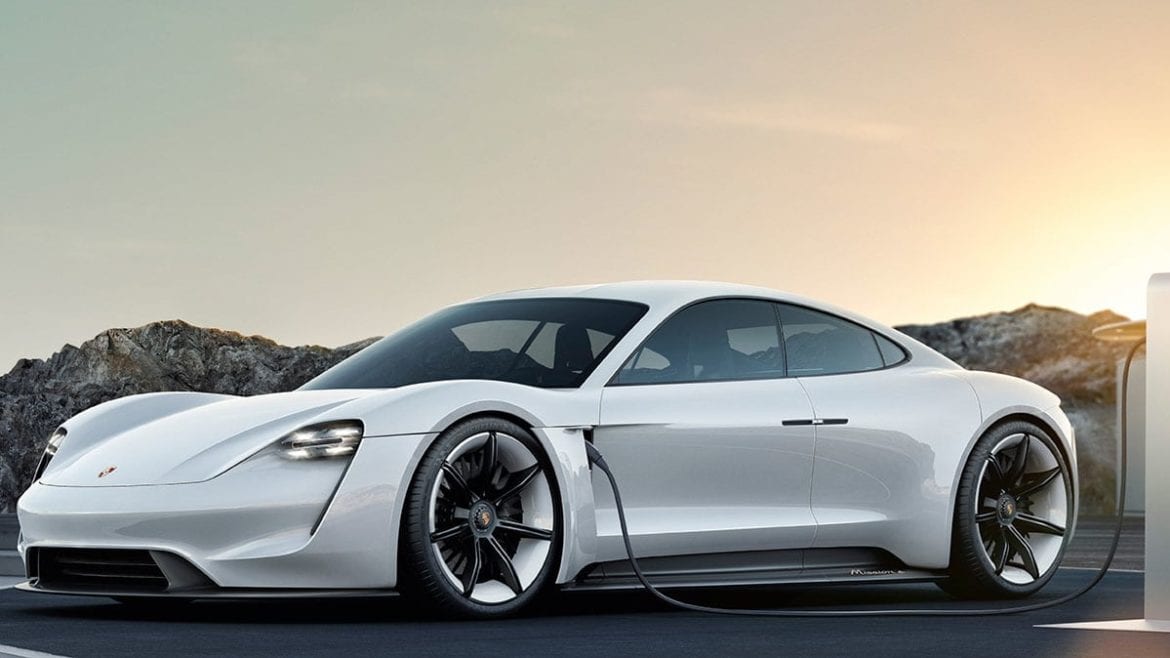Stefan Weckbach, Head of Battery Electric Vehicles at Porsche, recently sat down with Germany’s Firmenauto to discuss the first Porsche electric car as well as the automaker’s future electrification plans.
Since the reveal of the Porsche Taycan, formally known as the Mission E, the German automaker has been stressing that their first electric vehicle will still be reminiscent of traditional Porsche models despite its new electric powertrain.
During a recent interview with Firmenauto, Stefan Weckbach reassured fans that the new Porsche electric car would not stray too far from the traditional design that popularized previous models, stating:
“It was clear from the beginning that even an electrically driven Porsche would have to be the sportiest vehicle in its segment. At first glance, it will also be recognizable as a Porsche because we have transferred Porsche’s design DNA to our upcoming electric vehicles. You can be sure that the Taycan will meet the demands of Porsche in every respect, from the selection of materials to the quality of the complete vehicle.”
Weckbach later added:
“The Taycan drives like a Porsche, looks like one and feels so – except that he just has another drive. Even an electric sports car can be purist and highly emotional. This is not a contradiction for us. The underbody battery, for example, gives the car an extremely low center of gravity, it is even lower than the 911. In combination with an optimal weight distribution, the Taycan is therefore already very sporty created by the basic concept.”
On average, electric vehicles are heavier than most gas-powered alternatives due to their rather large battery packs. In order to support an adequate range, most electric vehicles are forced to include battery packs that typically weigh over 1,000 pounds. When Porsche originally announced that they would begin production of the Taycan back in October, many were left wondering how the automaker would tackle the weigh issue that plagues almost every electric vehicle. Weckbach addressed concerns, stating:
“A central question in the development was: Where is the optimal balance between range and performance? Theoretically, one would have to pack only a correspondingly large battery in the vehicle, already you have a lot of range. But that would not be typical Porsche, if only because of the excessive weight. On the one hand, we use very light electric motors. In addition, we can achieve a range of 500 kilometers via the high power density and high efficiency of the electric drive. This results in low power consumption, so we can use smaller and lighter batteries. We also worked very hard on the aerodynamics and fought in the wind tunnel for every cw-thousandth. This has enabled us to reduce air resistance to as low a value as possible.”
Weckbach went on to discuss the Taycan’s 800-volt system which will allow for a charge rate of up to 350kW, meaning the Porsche electric car should be able to charge up to 80% in just 15 minutes.
The interview concluded with Weckbach assuring that the Taycan, expected to be introduced late 2019, “will not just be an electric vehicle. He will be a Porsche.”
Source: Firmenauto
